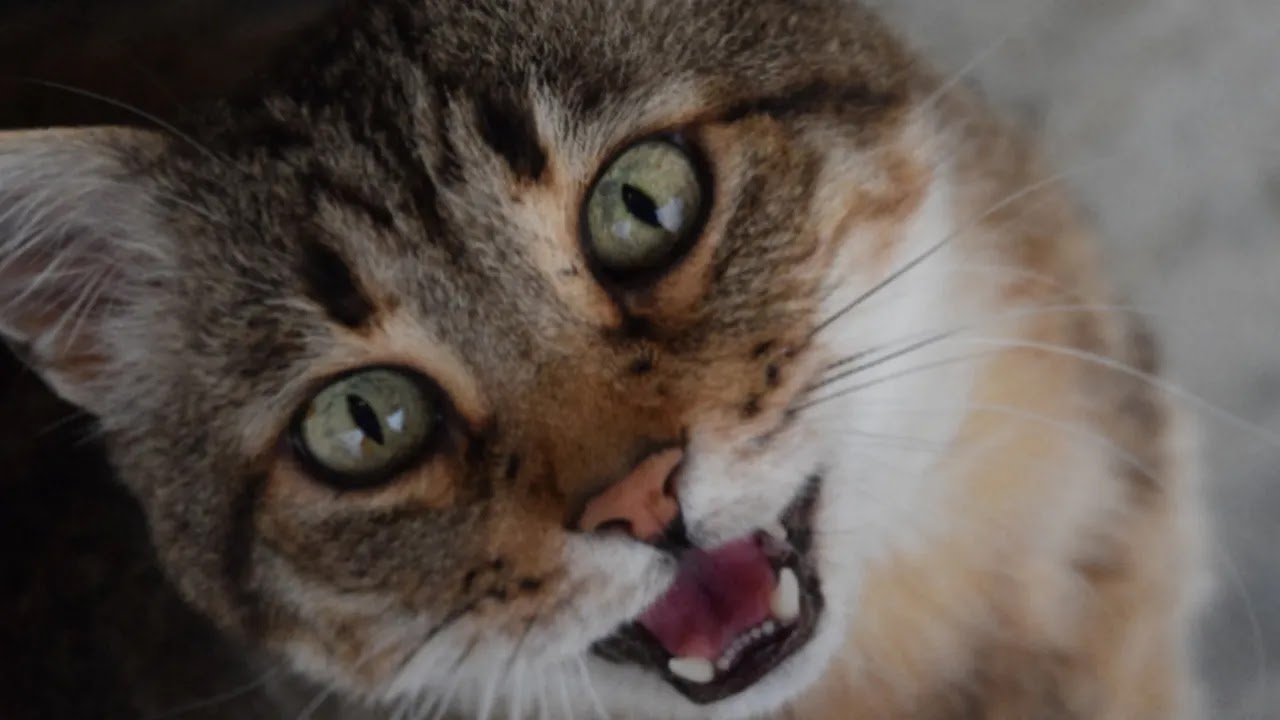introduction
Cats are known for their unique vocalizations, and while occasional meowing is normal, excessive meowing can leave cat owners wondering what's causing the feline chatter. In this essay, we will explore some of the common reasons behind why cats meow so much.
table about Reasons Behind Excessive Cat Meowing
| Item | Information |
|---|---|
| Attention-seeking | Cats may meow excessively to get your attention. They might want to play, be fed, or simply want some affection from their human. |
| Hunger | A hungry cat will often meow to let you know it's time for food. Make sure to stick to a consistent feeding schedule to avoid excessive meowing. |
| Stress or anxiety | Cats may meow more when they are experiencing stress or anxiety. Changes in their environment or routine can trigger this behavior. |
| Medical issues | If your cat's meowing is sudden and excessive, it could be a sign of an underlying medical issue. It's best to consult a veterinarian. |
| Age-related issues | Older cats may meow more due to cognitive decline or sensory changes. Regular check-ups can help identify any age-related concerns. |
| Attention-seeking | Cats may meow excessively to get your attention. They might want to play, be fed, or simply want some affection from their human. |
| Hunger | A hungry cat will often meow to let you know it's time for food. Make sure to stick to a consistent feeding schedule to avoid excessive meowing. |
| Stress or anxiety | Cats may meow more when they are experiencing stress or anxiety. Changes in their environment or routine can trigger this behavior. |
| Medical issues | If your cat's meowing is sudden and excessive, it could be a sign of an underlying medical issue. It's best to consult a veterinarian. |
| Age-related issues | Older cats may meow more due to cognitive decline or sensory changes. Regular check-ups can help identify any age-related concerns. |
Attention-seeking
Attention-seeking: One of the primary reasons cats meow excessively is to seek attention. Whether they're craving playtime, food, or simply some affection from their human companion, cats will often vocalize their needs through persistent meowing. Providing regular play sessions, sticking to a feeding schedule, and showering them with love can help reduce attention-seeking meows.
Hunger
Hunger: Another significant factor contributing to excessive meowing is hunger. Cats have internal clocks and are quite good at reminding their owners when it's time for a meal. To address this, it's essential to establish a consistent feeding routine, ensuring that your feline friend's nutritional needs are met.
Stress or anxiety
Stress or anxiety: Cats are sensitive creatures, and changes in their environment or routine can trigger stress or anxiety, leading to increased vocalizations. Moving to a new home, the introduction of a new family member (human or pet), or even rearranging furniture can all contribute to your cat feeling unsettled. Creating a calm and stable environment, providing hiding spots, and using pheromone products designed to reduce stress can be helpful in minimizing excessive meowing.
Medical issues
Medical issues: If your cat's meowing suddenly becomes excessive, it's crucial to consider the possibility of an underlying medical issue. Certain conditions, such as hyperthyroidism or urinary tract infections, can cause discomfort or pain, leading to increased vocalizations. It's always advisable to consult a veterinarian if you notice any abrupt changes in your cat's meowing behavior.
Age-related issues
Age-related issues: As cats age, they may experience cognitive decline or sensory changes, which can lead to increased meowing. Older cats may become disoriented, confused, or even exhibit signs of feline dementia. Regular veterinary check-ups can help identify and manage any age-related concerns, ensuring your senior cat's well-being.
Conclusion
Understanding the reasons behind excessive cat meowing is crucial for cat owners to provide appropriate care and attention to their feline companions. By addressing attention-seeking behavior, ensuring a consistent feeding schedule, minimizing stress, addressing medical concerns, and providing support for aging cats, owners can help reduce excessive meowing and maintain a harmonious household.
References
- Miller, L., Maranda, L., & Houpt, K. A. (2001). Signs of stress in cats. Applied Animal Behaviour Science, 73(2), 157-171.
- Buffington, C. A. T., & Westropp, J. L. (2004). Causes and prevention of feline house-soiling. Veterinary Clinics: Small Animal Practice, 34(4), 1025-1044.
- Overall, K. L., & Love, M. (2001). Dog and cat behavior problems: the epidemiology, evaluation, and management of behavior disorders in companion animals. Veterinary Clinics: Small Animal Practice, 31(3), 393-411.


